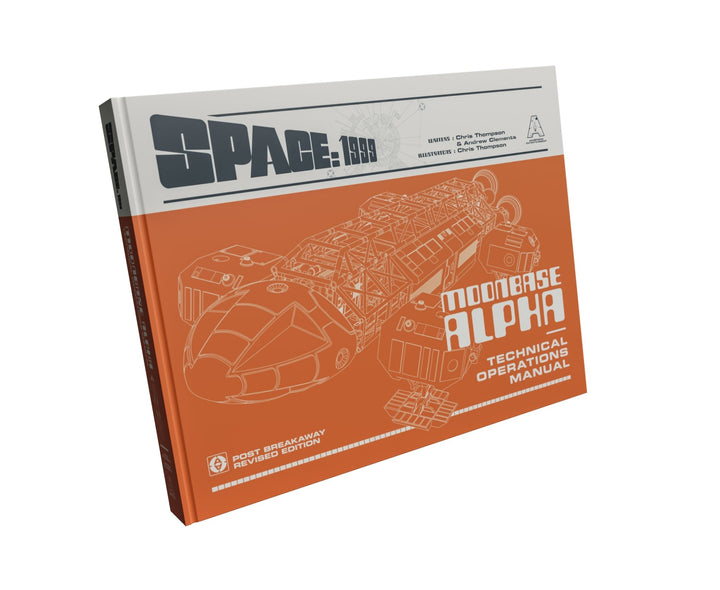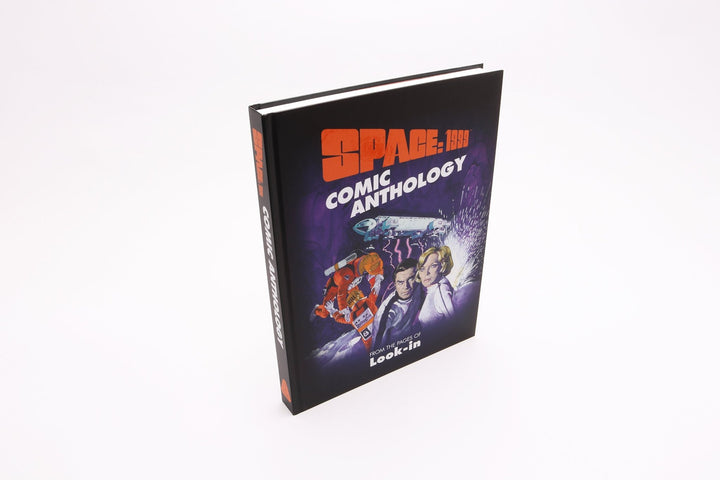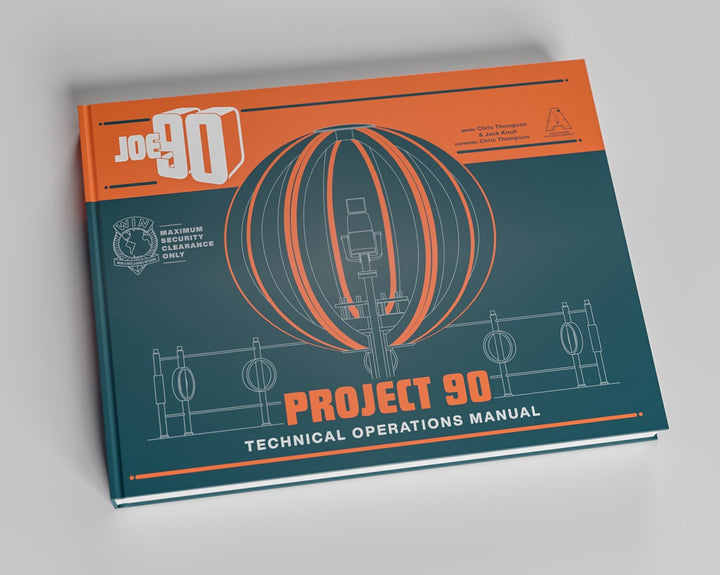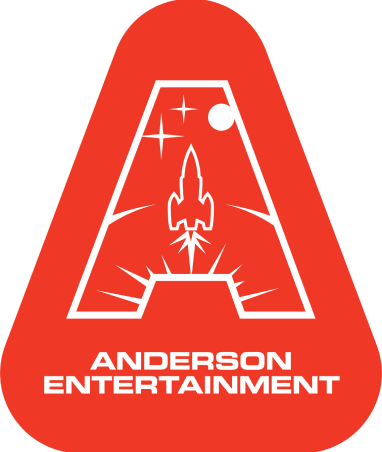Star Maidens - Space:1999's low budget cousin?

A breakaway planet approaching Earth’s solar system, beginning a sequence of events that will see human scientists visiting an alien world? It may sound similar to the first episode of Space:1999, but in fact also describes another sci-fi series that ran for thirteen weeks in between the two seasons of that show; Star Maidens, a British/German co-production that first aired on television in 1976.
The series followed the arrival in our solar system of the rogue planet Medusa, after it broke out of the orbit of Proxima Centauri following a collision with the comet Dionysus. The matriarchal humanoid society of Medusa, now living underground, are disgusted by the male-dominated Earth and declare the planet off-limits. However, two male slaves, Adam and Shem, decide to abandon their lives on Medusa and escape to Earth, pursued by female Medusans and Earth scientists alike.
 Four introductory episodes later, the format for the series is finally established; three Medusans (Adam, Shem, and Fulvia) are stranded on Earth, while two Earth scientists (Liz and Rudi) are held captive on Medusa, until such time as a prisoner exchange can be arranged - i.e. the final episode. Until then, various fish-out-of-water scenarios abound as our characters come to terms with their new lives on an alien world - and the gender politics inherent therein.
Four introductory episodes later, the format for the series is finally established; three Medusans (Adam, Shem, and Fulvia) are stranded on Earth, while two Earth scientists (Liz and Rudi) are held captive on Medusa, until such time as a prisoner exchange can be arranged - i.e. the final episode. Until then, various fish-out-of-water scenarios abound as our characters come to terms with their new lives on an alien world - and the gender politics inherent therein.
 Keith Wilson's city of Medusa.
Filmed at Bray Studios (the home of Space:1999’s model effects department) in the summer of 1975, the series has a lot in common with Space:1999 (despite not being a Gerry Anderson production) thanks to employing many of the same production personnel. Most notably, Space:1999’s production designer Keith Wilson served the same role on Star Maidens, designing the exteriors and interiors of the Medusan city – including its impressive two-level central plaza set which harkens back to the scale of Main Mission. Space:1999 set dresser Mike Ford also worked on the series, with the result being that the world of Medusa looks and feels very much like part of the 1999 universe - albeit perhaps the second season’s rather than the first!
Keith Wilson's city of Medusa.
Filmed at Bray Studios (the home of Space:1999’s model effects department) in the summer of 1975, the series has a lot in common with Space:1999 (despite not being a Gerry Anderson production) thanks to employing many of the same production personnel. Most notably, Space:1999’s production designer Keith Wilson served the same role on Star Maidens, designing the exteriors and interiors of the Medusan city – including its impressive two-level central plaza set which harkens back to the scale of Main Mission. Space:1999 set dresser Mike Ford also worked on the series, with the result being that the world of Medusa looks and feels very much like part of the 1999 universe - albeit perhaps the second season’s rather than the first!
 Medusa is threatened by Victor Bergman's globe and various UFO computer props and control panels in the series finale.
Also seen throughout the series are several of the familiar computer bank props from UFO, most notably in an alien spacecraft in the show’s final episode along with the globe seen in Victor Bergman’s quarters throughout Space:1999. The series even sounds very similar to 1999, re-using many of the show’s familiar sound effects - explosions, spacecraft interiors, laser firings and computer beeps – no doubt due to sound editor Peter Pennell working on both shows. Shot on 16mm film (as opposed to 1999's superior 35mm) the show’s model effects are similar to Space:1999’s but don't really compare in terms of quality, although they are still somewhat superior to those of BBC sci-fi productions from the same era.
Medusa is threatened by Victor Bergman's globe and various UFO computer props and control panels in the series finale.
Also seen throughout the series are several of the familiar computer bank props from UFO, most notably in an alien spacecraft in the show’s final episode along with the globe seen in Victor Bergman’s quarters throughout Space:1999. The series even sounds very similar to 1999, re-using many of the show’s familiar sound effects - explosions, spacecraft interiors, laser firings and computer beeps – no doubt due to sound editor Peter Pennell working on both shows. Shot on 16mm film (as opposed to 1999's superior 35mm) the show’s model effects are similar to Space:1999’s but don't really compare in terms of quality, although they are still somewhat superior to those of BBC sci-fi productions from the same era.
 Two former Alphans find themselves back on Earth; series stars Judy Geeson and Lisa Harrow.
The show’s cast featured several familiar Space:1999 faces, with two first season guest artists in lead roles. Judy Geeson, who played Regina Kesslann in Another Time, Another Place, played Fulvia, the pampered Medusan who found new purpose in her life during her accidental exile to Earth. Kidnapped Earth scientist Liz Becker was played by Lisa Harrow, who had previously played Anna Davis in 1999’s first season finale The Testament of Arkadia. Regular Space:1999 background artists Pam Rose and Ann-Maj Brit also appeared infrequently as Medusans, with 1999 stuntmen Alf Joint and Paul Weston also showing up for action scenes, and future guest star of The AB Chrysalis Ina Skriver appeared in the episode Creatures of the Mind. Although he wouldn’t be seen on camera, Robert Rietty (a prolific voice artist heard in Space:1999 as the Voice Probes in The AB Chrysalis, as well as certain redubbed lines from various male Italian actors in the first season) provided the redubbed voice of Adam. Aside from all the Anderson connections, of even greater appeal to cult sci-fi fans was the casting of future Blakes 7 star Gareth Thomas as one of the escapee Medusan men, Shem.
Two former Alphans find themselves back on Earth; series stars Judy Geeson and Lisa Harrow.
The show’s cast featured several familiar Space:1999 faces, with two first season guest artists in lead roles. Judy Geeson, who played Regina Kesslann in Another Time, Another Place, played Fulvia, the pampered Medusan who found new purpose in her life during her accidental exile to Earth. Kidnapped Earth scientist Liz Becker was played by Lisa Harrow, who had previously played Anna Davis in 1999’s first season finale The Testament of Arkadia. Regular Space:1999 background artists Pam Rose and Ann-Maj Brit also appeared infrequently as Medusans, with 1999 stuntmen Alf Joint and Paul Weston also showing up for action scenes, and future guest star of The AB Chrysalis Ina Skriver appeared in the episode Creatures of the Mind. Although he wouldn’t be seen on camera, Robert Rietty (a prolific voice artist heard in Space:1999 as the Voice Probes in The AB Chrysalis, as well as certain redubbed lines from various male Italian actors in the first season) provided the redubbed voice of Adam. Aside from all the Anderson connections, of even greater appeal to cult sci-fi fans was the casting of future Blakes 7 star Gareth Thomas as one of the escapee Medusan men, Shem.
 The Medusan space yacht Nemesis makes a landing on Earth.
But what of the series itself? What indeed. A series of two halves, in more ways than one, Star Maidens suffered from being an international co-production between two countries who each wanted different things from the show; the British wanted an intelligent examination of a sci-fi ‘battle of the sexes’ scenario, while the Germans were hoping for a sexy sci-fi comedy. The latter was reflected in some romantic subplots and a few of the more outlandish Medusan costumes (such as the crop-topped micro-skirted crash-helmeted security guards), but as a family show Star Maidens could never really get too raunchy and any bedroom-related antics were kept well within the confines of a Saturday morning kids tv show.
The Medusan space yacht Nemesis makes a landing on Earth.
But what of the series itself? What indeed. A series of two halves, in more ways than one, Star Maidens suffered from being an international co-production between two countries who each wanted different things from the show; the British wanted an intelligent examination of a sci-fi ‘battle of the sexes’ scenario, while the Germans were hoping for a sexy sci-fi comedy. The latter was reflected in some romantic subplots and a few of the more outlandish Medusan costumes (such as the crop-topped micro-skirted crash-helmeted security guards), but as a family show Star Maidens could never really get too raunchy and any bedroom-related antics were kept well within the confines of a Saturday morning kids tv show.
 Medusan guard uniforms; because when you work in security, it's important to leave at least 70% of your body completely unprotected.
The show’s ‘battle of the sexes’ element is more prominent, but often feels like The Two Ronnies serial The Worm That Turned played straight, and in space - similar to the Space:1999 episodes The Last Enemy and Devil's Planet, in fact. The ‘battle’ as such never really amounts to much more than the Medusans declaring their superiority, failing, and needing to be helped out of their latest jam by their men…before conceding that, just perhaps, men aren’t so stupid after all. Then next week the entire cycle repeats itself once again. Clearly devised (by Dixon of Dock Green and The Avengers writer Eric Paice) as some kind of response to the hot-button 1970s topic of women’s lib, the series was then penned entirely by male writers (including genre stalwarts John Lucarotti and Ian Stuart Black) who probably weren’t exactly experts on the subject. Unsurprising for the 1970s, yet almost unthinkable were you to attempt the same concept today. As a result, the female Medusan characters often appear vain, arrogant, and ignorant, although they do become more sympathetic by the end of the series. The episode The Perfect Couple, a role reversal 'comedy' which sees Adam and Fulvia attempting to adjust to life in suburbia, is the closest the show comes to directly examining gender stereotypes and prejudices, and may perhaps be the definitive example of whatever it was Star Maidens was hoping to achieve.
Medusan guard uniforms; because when you work in security, it's important to leave at least 70% of your body completely unprotected.
The show’s ‘battle of the sexes’ element is more prominent, but often feels like The Two Ronnies serial The Worm That Turned played straight, and in space - similar to the Space:1999 episodes The Last Enemy and Devil's Planet, in fact. The ‘battle’ as such never really amounts to much more than the Medusans declaring their superiority, failing, and needing to be helped out of their latest jam by their men…before conceding that, just perhaps, men aren’t so stupid after all. Then next week the entire cycle repeats itself once again. Clearly devised (by Dixon of Dock Green and The Avengers writer Eric Paice) as some kind of response to the hot-button 1970s topic of women’s lib, the series was then penned entirely by male writers (including genre stalwarts John Lucarotti and Ian Stuart Black) who probably weren’t exactly experts on the subject. Unsurprising for the 1970s, yet almost unthinkable were you to attempt the same concept today. As a result, the female Medusan characters often appear vain, arrogant, and ignorant, although they do become more sympathetic by the end of the series. The episode The Perfect Couple, a role reversal 'comedy' which sees Adam and Fulvia attempting to adjust to life in suburbia, is the closest the show comes to directly examining gender stereotypes and prejudices, and may perhaps be the definitive example of whatever it was Star Maidens was hoping to achieve.
 Exciting sci-fi action; Blakes Breakfast!
The tone of the series also varies wildly from episode to episode, alternating between being set on Earth and Medusa in such a way that main characters can disappear for whole episodes at a time. Some weeks will offer futuristic-looking sci-fi antics on Medusa (just don't expect any space battles), while the stories set on Earth tend to involve much hanging around the house or scampering around the woods of Black Park (a popular landing site for UFO’s Aliens as well as several alien planets in Space:1999). The stories set on Medusa tend to be among the show’s strongest, with the penultimate episode Creatures of the Mind feeling particularly Space:1999-ish as Liz finds herself trapped and stalked by the long-forgotten products of Medusa’s experiments in artificial intelligence.
Exciting sci-fi action; Blakes Breakfast!
The tone of the series also varies wildly from episode to episode, alternating between being set on Earth and Medusa in such a way that main characters can disappear for whole episodes at a time. Some weeks will offer futuristic-looking sci-fi antics on Medusa (just don't expect any space battles), while the stories set on Earth tend to involve much hanging around the house or scampering around the woods of Black Park (a popular landing site for UFO’s Aliens as well as several alien planets in Space:1999). The stories set on Medusa tend to be among the show’s strongest, with the penultimate episode Creatures of the Mind feeling particularly Space:1999-ish as Liz finds herself trapped and stalked by the long-forgotten products of Medusa’s experiments in artificial intelligence.
 Adam and Shem arrive on Earth. Not pictured; SHADO Mobiles getting ready to blow them up.
Adam and Shem arrive on Earth. Not pictured; SHADO Mobiles getting ready to blow them up.
 Although available on DVD the series has not been repeated in the UK since the 1970s, beyond appearing on the 1970s-focused edition of 2015’s Best of Bad TV. This lazy Channel 5 clip show (featuring ‘celebrities’ decrying various shows of the era as “well rubbish, weren’t it?”) saw Star Maidens well at home among such other easy targets as UFO, Doctor Who, Blakes 7, and, er, I, Claudius. Far more positive was Diane Morgan’s article on the series in the recent sci-fi themed issue of TV Years magazine, where she valiantly praised the series (and in particular the Medusan medical robot Medibot) despite being clearly aware that, objectively, it probably didn’t deserve her kind words.
Although available on DVD the series has not been repeated in the UK since the 1970s, beyond appearing on the 1970s-focused edition of 2015’s Best of Bad TV. This lazy Channel 5 clip show (featuring ‘celebrities’ decrying various shows of the era as “well rubbish, weren’t it?”) saw Star Maidens well at home among such other easy targets as UFO, Doctor Who, Blakes 7, and, er, I, Claudius. Far more positive was Diane Morgan’s article on the series in the recent sci-fi themed issue of TV Years magazine, where she valiantly praised the series (and in particular the Medusan medical robot Medibot) despite being clearly aware that, objectively, it probably didn’t deserve her kind words.
 Star Maidens; boldly going where no sci-fi show has gone before by showing that men too can host pleasant neighbourhood tea parties.
Among sci-fi fans (at least, those who even remember it) the show’s reputation has over the years somehow sunk so low that even its most mediocre instalment is probably far more entertaining than you might expect, if you’re willing to give it a chance. Space:1999 and Blakes 7 fans will obviously find much of interest here, but the show also benefits from the feeling that everyone involved really was trying their best – even if they were pulling in completely different directions at times. Gareth Thomas, Lisa Harrow and particularly Christiane Kruger as the iconic Medusan security chief Octavia all give strong central performances that rise above the material they’re given, a handful of episodes touch on interesting themes and ideas, and a gloriously 1970s soundtrack from German composer Berry Lipman helps you get through some of the less interesting Earth-bound instalments. Yes, I’m listening to the soundtrack CD as I write this.
Is Star Maidens any good? That’s perhaps not a word the series quite deserves - but fun, entertaining, amusing, and bonkers are four that it earns easily.
Star Maidens; boldly going where no sci-fi show has gone before by showing that men too can host pleasant neighbourhood tea parties.
Among sci-fi fans (at least, those who even remember it) the show’s reputation has over the years somehow sunk so low that even its most mediocre instalment is probably far more entertaining than you might expect, if you’re willing to give it a chance. Space:1999 and Blakes 7 fans will obviously find much of interest here, but the show also benefits from the feeling that everyone involved really was trying their best – even if they were pulling in completely different directions at times. Gareth Thomas, Lisa Harrow and particularly Christiane Kruger as the iconic Medusan security chief Octavia all give strong central performances that rise above the material they’re given, a handful of episodes touch on interesting themes and ideas, and a gloriously 1970s soundtrack from German composer Berry Lipman helps you get through some of the less interesting Earth-bound instalments. Yes, I’m listening to the soundtrack CD as I write this.
Is Star Maidens any good? That’s perhaps not a word the series quite deserves - but fun, entertaining, amusing, and bonkers are four that it earns easily.
 Also, guilty pleasure. But that’s two.
If you’ve managed to enjoy some of the dafter second season episodes of Space:1999 and are still somehow hungry for more in the same vein, Star Maidens is certainly worth a look. Close your eyes and the soundtrack alone will transport you back to Moonbase Alpha. Turn off your brain and the series will reward you with hours of amusement in how often its earnest and sincere attempts to explore the differences between the sexes fail utterly; you'll then be able to appreciate its occasional accidental moments of genuine greatness all the more. It may not be great science fiction, or even great television - but it is great fun.
Just don't tell anybody about it afterwards.
Also, guilty pleasure. But that’s two.
If you’ve managed to enjoy some of the dafter second season episodes of Space:1999 and are still somehow hungry for more in the same vein, Star Maidens is certainly worth a look. Close your eyes and the soundtrack alone will transport you back to Moonbase Alpha. Turn off your brain and the series will reward you with hours of amusement in how often its earnest and sincere attempts to explore the differences between the sexes fail utterly; you'll then be able to appreciate its occasional accidental moments of genuine greatness all the more. It may not be great science fiction, or even great television - but it is great fun.
Just don't tell anybody about it afterwards.
https://www.youtube.com/watch?v=vaDLf2wJ9Jg
 Four introductory episodes later, the format for the series is finally established; three Medusans (Adam, Shem, and Fulvia) are stranded on Earth, while two Earth scientists (Liz and Rudi) are held captive on Medusa, until such time as a prisoner exchange can be arranged - i.e. the final episode. Until then, various fish-out-of-water scenarios abound as our characters come to terms with their new lives on an alien world - and the gender politics inherent therein.
Four introductory episodes later, the format for the series is finally established; three Medusans (Adam, Shem, and Fulvia) are stranded on Earth, while two Earth scientists (Liz and Rudi) are held captive on Medusa, until such time as a prisoner exchange can be arranged - i.e. the final episode. Until then, various fish-out-of-water scenarios abound as our characters come to terms with their new lives on an alien world - and the gender politics inherent therein.
 Keith Wilson's city of Medusa.
Keith Wilson's city of Medusa. Medusa is threatened by Victor Bergman's globe and various UFO computer props and control panels in the series finale.
Medusa is threatened by Victor Bergman's globe and various UFO computer props and control panels in the series finale. Two former Alphans find themselves back on Earth; series stars Judy Geeson and Lisa Harrow.
Two former Alphans find themselves back on Earth; series stars Judy Geeson and Lisa Harrow. The Medusan space yacht Nemesis makes a landing on Earth.
The Medusan space yacht Nemesis makes a landing on Earth. Medusan guard uniforms; because when you work in security, it's important to leave at least 70% of your body completely unprotected.
Medusan guard uniforms; because when you work in security, it's important to leave at least 70% of your body completely unprotected. Exciting sci-fi action; Blakes Breakfast!
Exciting sci-fi action; Blakes Breakfast! Adam and Shem arrive on Earth. Not pictured; SHADO Mobiles getting ready to blow them up.
Adam and Shem arrive on Earth. Not pictured; SHADO Mobiles getting ready to blow them up. Although available on DVD the series has not been repeated in the UK since the 1970s, beyond appearing on the 1970s-focused edition of 2015’s Best of Bad TV. This lazy Channel 5 clip show (featuring ‘celebrities’ decrying various shows of the era as “well rubbish, weren’t it?”) saw Star Maidens well at home among such other easy targets as UFO, Doctor Who, Blakes 7, and, er, I, Claudius. Far more positive was Diane Morgan’s article on the series in the recent sci-fi themed issue of TV Years magazine, where she valiantly praised the series (and in particular the Medusan medical robot Medibot) despite being clearly aware that, objectively, it probably didn’t deserve her kind words.
Although available on DVD the series has not been repeated in the UK since the 1970s, beyond appearing on the 1970s-focused edition of 2015’s Best of Bad TV. This lazy Channel 5 clip show (featuring ‘celebrities’ decrying various shows of the era as “well rubbish, weren’t it?”) saw Star Maidens well at home among such other easy targets as UFO, Doctor Who, Blakes 7, and, er, I, Claudius. Far more positive was Diane Morgan’s article on the series in the recent sci-fi themed issue of TV Years magazine, where she valiantly praised the series (and in particular the Medusan medical robot Medibot) despite being clearly aware that, objectively, it probably didn’t deserve her kind words.
 Star Maidens; boldly going where no sci-fi show has gone before by showing that men too can host pleasant neighbourhood tea parties.
Star Maidens; boldly going where no sci-fi show has gone before by showing that men too can host pleasant neighbourhood tea parties. Also, guilty pleasure. But that’s two.
Also, guilty pleasure. But that’s two.



![Thunderbirds Comic Anthology Volume One [HARDCOVER] - The Gerry Anderson Store](http://gerryanderson.com/cdn/shop/files/thunderbirds-comic-anthology-volume-one-hardcover-8030771.jpg?v=1751089031&width=720)
![All Sections Alpha: The Making of Space: 1999 [HARDCOVER] - The Gerry Anderson Store](http://gerryanderson.com/cdn/shop/files/all-sections-alpha-the-making-of-space-1999-hardcover-7498116.png?v=1757766647&width=720)

![Stingray Comic Anthology Volume Two – Battle Lines [HARDCOVER] - The Gerry Anderson Store](http://gerryanderson.com/cdn/shop/files/stingray-comic-anthology-volume-two-battle-lines-hardcover-107681.jpg?v=1738856151&width=720)
![Stingray W.A.S.P. Technical Operations Manual Standard Edition [HARDCOVER] - The Gerry Anderson Store](http://gerryanderson.com/cdn/shop/files/stingray-wasp-technical-operations-manual-standard-edition-hardcover-112278.jpg?v=1749664163&width=720)
![Stingray WASP Technical Operations Manual Special Limited Edition [HARDCOVER BOOK] - The Gerry Anderson Store](http://gerryanderson.com/cdn/shop/files/stingray-wasp-technical-operations-manual-special-limited-edition-hardcover-book-991914.jpg?v=1749657538&width=720)
![Stingray: The Titanican Stratagem – Signed Limited Edition [HARDCOVER NOVEL] - The Gerry Anderson Store](http://gerryanderson.com/cdn/shop/files/stingray-the-titanican-stratagem-signed-limited-edition-hardcover-novel-129251.jpg?v=1740558711&width=720)







